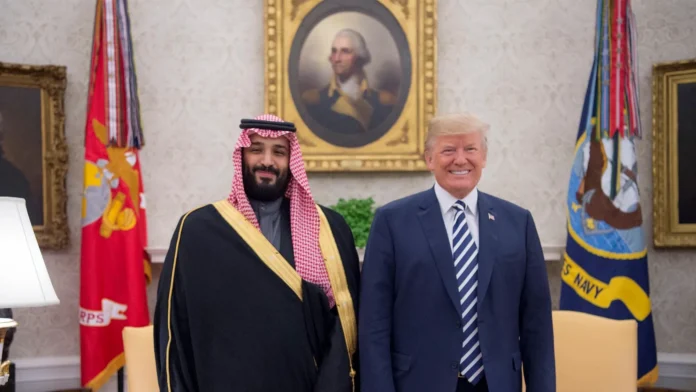President Donald Trump is heading to Saudi Arabia this week to discuss several critical issues. At the center of those talks lies one central goal: U.S.-Saudi nuclear cooperation. This phrase now represents far more than just energy—it’s a strategic pivot.
The Trump administration has shown great enthusiasm for helping Saudi Arabia launch a civilian nuclear power program. Energy Secretary Chris Wright recently visited Riyadh and described upcoming developments as “meaningful.” Wright emphasized that the U.S. is eager to assist in developing a new commercial energy sector in the region.
However, not everything is smooth. One major sticking point is Saudi Arabia’s demand to enrich its own uranium. That request raises fears of regional nuclear arms races. As Iran continues to engage with the U.S. over its own nuclear capabilities, Saudi ambitions complicate the delicate balance.
Yet, the opportunity is massive. U.S.-Saudi nuclear cooperation could shut out Russian and Chinese influence in the region’s growing energy market. American nuclear companies could benefit greatly if Washington seals this deal.
Saudi leaders argue that building a nuclear industry supports economic reform. Their goal is to preserve more oil for export and diversify energy resources. Additionally, Crown Prince Mohammed bin Salman wants to process domestic uranium for reactor fuel. However, international agencies claim Saudi deposits are not economically viable.
Despite technical concerns, the Saudis insist on controlling uranium enrichment. This remains one of the most controversial parts of the discussions. Critics warn that any such move could destabilize nonproliferation agreements.
Trump may avoid final commitments on this trip. Instead, the White House could send signals of progress without locking in full cooperation. Experts suggest this approach keeps diplomatic leverage alive, especially regarding Saudi-Israel normalization talks.
Under Biden, nuclear talks were tied to broader Middle East peace goals. Trump, however, seems to be reshaping that strategy. Even without breakthroughs, a gesture toward U.S.-Saudi nuclear cooperation could carry major geopolitical weight.
Prince Mohammed’s past statement still echoes: if Iran builds a bomb, Saudi Arabia will too. So while peace overtures continue, trust remains fragile. Regional security, economic opportunity, and American influence all depend on how U.S.-Saudi nuclear cooperation unfolds next.
For more political updates, visit DC Brief.


